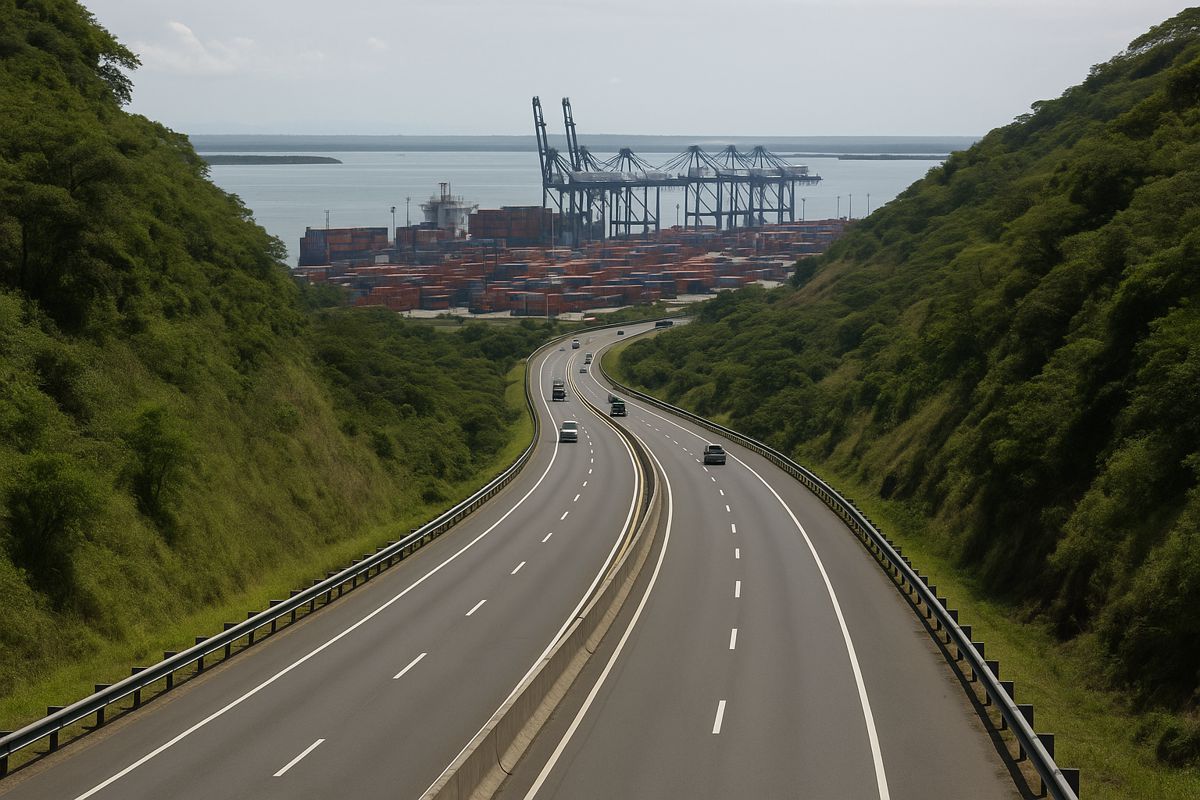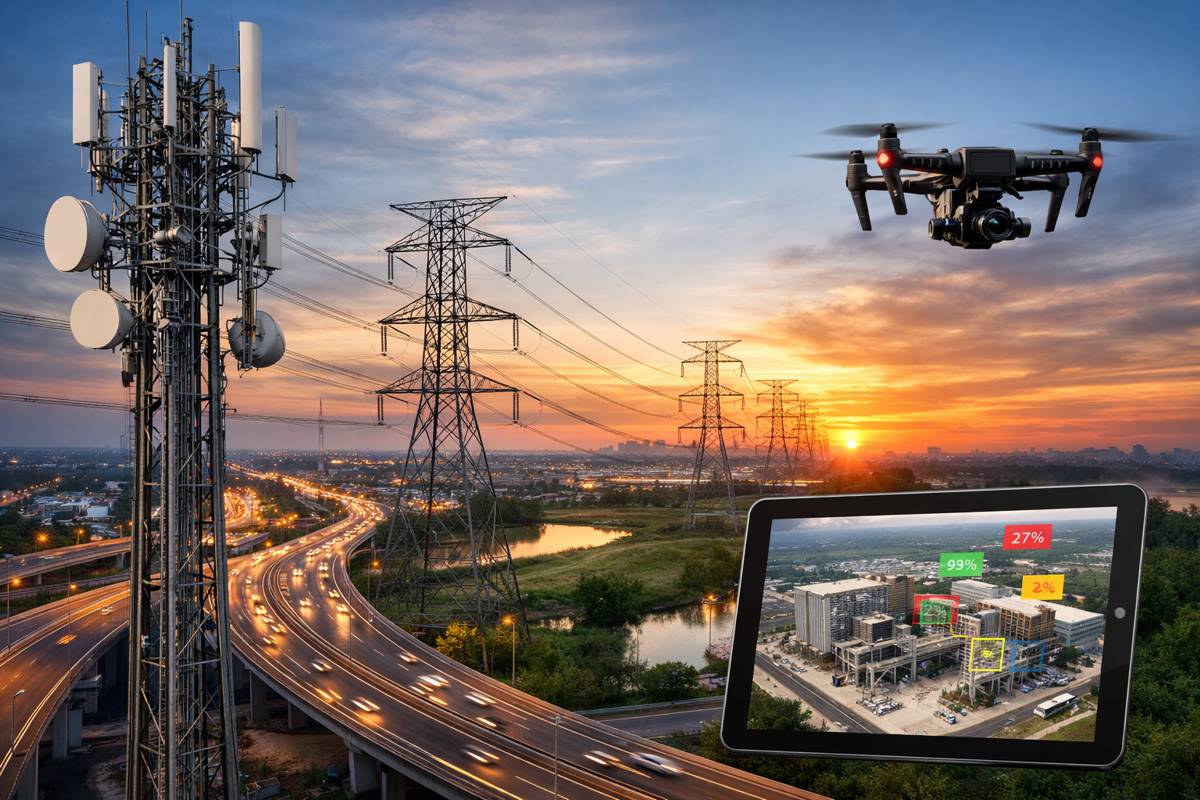IFC Finances $220m Sustainability-Linked Loan for Colombia Trade Corridor
The International Finance Corporation (IFC), part of the World Bank Group, has announced a landmark financing initiative for one of Colombia’s most critical transport arteries, the Buga–Loboguerrero–Buenaventura (BLB) corridor.
Valued at US$220 million, this investment takes the form of a Sustainability-Linked Loan (SLL), a pioneering approach that directly ties financing terms to measurable environmental and social performance.
Awarded in 2022 to the Spanish infrastructure group SACYR, the BLB concession covers the operation and upgrade of a vital brownfield toll road. The route connects Colombia’s industrial heartlands to Buenaventura, the nation’s largest port on the Pacific, through which 44% of Colombia’s international trade flows. Strengthening this corridor is seen as a national priority, given its central role in trade, logistics, and regional development.
Why this corridor matters
The BLB corridor is not just another highway. It is the backbone linking Colombia’s inland agricultural, industrial, and mining hubs with global shipping routes. The port of Buenaventura is the gateway for exports ranging from coffee and coal to manufactured goods, as well as the entry point for imported essentials. However, the corridor has long struggled with issues of maintenance, disruptions, and limited capacity, hampering competitiveness.
The new investment is expected to deliver travel time reductions of 30 to 40 minutes, ensuring smoother logistics and reducing the risks associated with a historically fragile route. Improved reliability is likely to boost investor confidence and catalyse regional development, creating jobs and enhancing Colombia’s trade resilience.
Sustainability at the core
What sets this project apart is its financing structure. The US$220 million facility represents the first Sustainability-Linked Loan applied to project finance for a road concession in Latin America, and the largest project finance facility in Colombia. The broader financing package totals around US$904 million, with parallel lenders joining under IFC’s leadership in environmental and social (E&S) coordination.
Sustainability-Linked Loans are designed to encourage borrowers to meet ambitious targets. In this case, SACYR has committed to reducing absolute greenhouse gas emissions and raising the share of women employed during both the construction and operational phases of the corridor. Meeting these Key Performance Indicators (KPIs) will directly influence the loan’s terms, making sustainability integral to the project’s success.
Setting new standards for infrastructure finance
The introduction of sustainability metrics into road financing is a significant step for Latin America. It reflects a global shift towards linking infrastructure development with measurable environmental and social outcomes, moving beyond traditional engineering and financial considerations. By embedding sustainability into the DNA of the financing, the project aligns Colombia’s infrastructure growth with global ESG (Environmental, Social, and Governance) benchmarks.
Cheryl Edleson Hanway, IFC’s Regional Industry Director, highlighted the significance: “This loan marks a significant milestone for sustainable infrastructure in Colombia and the region. By structuring the financing as a Sustainability-Linked Loan, IFC is not only mobilizing long-term capital for a critical trade corridor, but also setting new standards for environmental and social performance. We are proud to partner with SACYR and the Government of Colombia to deliver tangible and sustainable economic development, job creation and benefits for the regional economy and communities.”
SACYR’s role in delivery
SACYR, the Spanish multinational behind the BLB concession, brings extensive experience in developing and operating large-scale infrastructure. The company already has a notable footprint in Latin America, where it has delivered a range of transport and energy projects. For Colombia, this is IFC’s first direct engagement with SACYR, marking an important new partnership in the region.
Ignacio García, Country Director of Sacyr in Colombia, underscored the local impact: “Congratulations to the team and thanks to the entities for their trust. This project is key to the development of the region and will bring important social benefits to the communities.”
Wider economic and social impacts
The BLB corridor is expected to deliver more than just quicker journeys. By reducing fuel consumption through more efficient traffic flow, the project will help lower logistics costs and emissions. Improved connectivity is also projected to generate direct and indirect employment opportunities, stimulate regional markets, and reinforce integration across Colombia’s Pacific and inland economies.
The inclusion of gender equity as a KPI also reflects a broader push in Colombia and Latin America to improve women’s participation in traditionally male-dominated sectors such as construction and infrastructure. This approach is expected to create more inclusive employment models, generating long-term social dividends.
IFC’s growing role in Colombian infrastructure
The BLB investment represents IFC’s third direct participation in Colombia’s 4G and 5G toll road programme, which aims to modernise the country’s highway network through public-private partnerships. The institution has become a crucial player in mobilising capital for these schemes, often acting as a catalyst for parallel investments by commercial banks and development finance institutions.
In fiscal year 2024, IFC committed a record US$56 billion globally to private sector projects in emerging markets. With operations in more than 100 countries, IFC has consistently leveraged private capital and expertise to accelerate infrastructure delivery while embedding sustainability standards.
A model for the future
This transaction signals a new chapter for infrastructure finance in Latin America. By blending traditional project finance with sustainability-linked mechanisms, IFC and SACYR are demonstrating how capital can be mobilised for projects that not only build roads but also drive progress towards environmental and social goals.
Other emerging economies will be watching closely. The success of the BLB project could establish a model for sustainable road financing across the region, particularly in markets where infrastructure bottlenecks constrain trade and growth.
Driving sustainable growth in Colombia
Colombia has ambitious plans to expand and modernise its transport networks as part of its broader economic strategy. With international trade becoming more competitive, the ability to ensure efficient access to ports like Buenaventura will be central to the country’s long-term growth.
By tying finance to sustainability outcomes, the BLB corridor shows how infrastructure can simultaneously advance competitiveness, reduce environmental impacts, and foster social inclusion. It demonstrates that building roads in the 21st century is about far more than asphalt and concrete—it’s about creating resilient, future-ready pathways that support both commerce and communities.




















